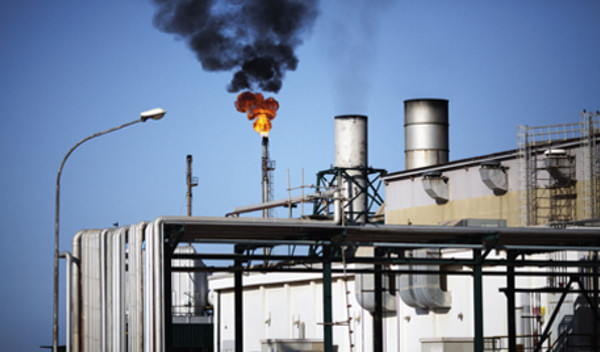

Investors should be cautious of the recent rebound in the price of oil as the commodity could slip back to the lows it plummeted to at the early part of this year, fund managers warn.
The price recovered by almost one-third between the end of January and February, after it fell about 60 per cent from the summer of 2014 to less than $50 per barrel.
But the rebound is more likely to be a ‘dead cat bounce’ than the start of a recovery back to the old level, experts have warned.
Argonaut Capital manager Greg Bennett said the fall in the price of oil meant the market had entered “a new paradigm, whereby crude prices remain lower for longer”.
The price of oil is predominantly driven by supply and demand dynamics and many have suggested the weakness in the cost was due to a recent glut of supply.
One major factor of the low price is the fact the Organisation of the Petroleum Exporting Countries has maintained its level of supply instead of reacting to the falling cost with a cut in production.
There is also an oversupply in the US because of the growth in shale oil production from the rise in the process of fracking.
Since 2007, shale oil output has increased from 500,000 barrels per day (bpd) to 4.3m bpd by the end of September last year, according to the US Energy Information Administration.
Some critics had questioned the sustainability of US shale oil production, but Mr Bennett said “evidence suggests supply is sustainable at current prices and theoretically even lower levels”, meaning downward pressure on crude could be sustained.
Mr Bennett said the recent rebound in the price of Brent crude oil was because of “opportunistic buying [to] fill up onshore storage facilities”.
He predicted these facilities “will be full in a matter of weeks”.
The activity of hedge funds followed a similar logic.
In the week to March 3, hedge funds cut their bets on net long positions in West Texas Intermediate crude oil prices at the fastest pace since December 2012, data from the US Commodity Futures Trading Commission, published by Bloomberg, showed.
James Sutton, who works on the £705m JPMorgan Asset Management Natural Resources fund, predicted the price of oil would stay at around $60-$70 per barrel for the next couple years.
“We don’t believe it is going to go up in a straight line,” he said.
However, the manager expected the commodity would have to move back towards $90 per barrel at some point in the future to incentivise production.
But not all experts agreed and anticipated that it might return to $80-$90 per barrel by the end of this year.
Charles Whall, manager of the £116m Investec Global Energy fund, predicted the price of Brent crude oil could drop as low as $50 per barrel this month, but rebound to $85 per barrel by the end of the year driven by weak global production.
Could the low oil price be an opportunity to gain exposure?
Multi-asset manager Tom Becket is inclined to agree the current rise in the price of oil is little more than the proverbial ‘dead cat bounce’.
But Psigma Investment Management’s chief investment officer said he was willing to play the long game and so had bought into what had been a challenged fund in terms of performance.
The manager had bought into John Dodd and Richard Hulf’s £43.7m Artemis Global Energy fund, which had lost 41.3 per cent since its launch in April 2011, data from FE Analytics showed.
While commodities have had a rough ride, the losses were greater than the 8.4 per cent fall in the benchmark MSCI ACWI/Energy index.
A total of 95.5 per cent of the fund was invested in oil, gas and consumable fuels, the latest factsheet revealed.
The manager said in the factsheet’s commentary: “We believe this is the time to position the fund to benefit from an eventual recovery in crude, which will come as a fall in supply starts to correct the previous glut.
“The start of the reporting season confirmed companies such as BP and Shell are cutting capital expenditure, reinforcing our view that reduced production will eventually support the oil price.”
It seems now is the time to make your mind up on oil.




